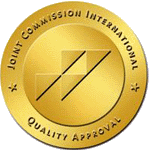Room of Vascular Health and Memory Problems
Goal: system approach to monitoring, prevention, and mitigation of risk factors of acute cerebrovascular event, cognitive defects and to opportune treatment of concomitant cerebrovascular diseases.
Concept and Operating Procedure:
Prognostication is very important for the substantiation of the scope of examination and choice between pharmaceutical and/or surgical treatment. Patients with a low risk of cerebral incident do not require a sound medical judgment with the use of imaging techniques of heart, vessels, and brain. This allows correctly distributing resources of health care and optimizing work time of specialists. On the other hand, patients of a high risk category must in a timely manner undergo a comprehensive examination.
Depending on the risk level, preventive treatment methods vary as well. For example, anti-thrombotic therapy is not indicated for patients with a low risk of cardiovascular complications. However, patients with high grades of risks must receive a vigorous integrated treatment including statins, anticoagulants, and antihypertensive drugs depending on main syndromes that can lead to the cerebral incident. No less important is detailed examination of such patients with the use of advanced imaging techniques (duplex US, computer tomography, MRT). Early detection of cerebral circulation disorder, brain damages, and opportune surgical or endovascular treatment, when indicated, allows preventing cerebral incident.
Task of a doctor is to use prognostication criteria in a skillful way for the benefit of a patient and for the prevention of a brain catastrophe.
Continuation of work with identified cases must be based on a staged individual targeted program within the framework of the established Room for Vascular Health and Memory Problems:
1st stage: Screening (physicians of preventative department) according to EURO SCORE model;
2nd stage: Stratification of ESH/ESC general cardiovascular risk (therapists, cardiologists, neurologists of preventative department). In case of detection of the medium and high risk the patient is transferred to the 3rd stage;
3rd stage: Assessment of cognitive functions according to Memory Clinics check-up procedure.
Appealability of patients will be associated with complaints of defective memory and other cognitive disorders, i.e. sporadic cases in patients of any age, but the main patients’ stream will be of the age 40 and above. Cognitive disorders include impairment of general cognitive functioning, orientation, memory, speech, skills of visual perception and executive functions.
Clinical aspects:
-
Determination of memory impairment level
-
Identification of reversible systemic disturbances (for example, associated with hypothyroidism or B12 vitamin deficit).
-
Diagnostics of cognitive disorders from slight cognitive disorder to dementia including the Alzheimer-type
-
Differential diagnostics of cognitive disorders’ causes
-
Symptomatic treatment of cognitive disorders and their associated symptoms
-
Individualization of patients with moderate cognitive disorders into a ‘risk group’
-
Preventive measures. Neuropsychologic brain training (brain fitness)
Patient examination schedule:
-
Neurological examination with the use of specific cognitive functions investigation techniques
-
Neuropsychologic testing (battery of tests to be conducted by psychologist)
-
Laboratory diagnostics (biochemical blood count, microelements, liver values and thyroid hormones, vitamins level, RPR - Rapid Plasma Reagin)
-
Neurovisualization (brain MRT)
To conduct differential diagnosis (type of dementia, other neurological diagnosis including neurodegenerative, oncologic, traumatic) additionally:
-
Consultation by psychiatrist
-
PET
-
EEG
-
ENVG
4th stage: Patient’s routing, integrated commission opinion of Head of the Room for preventive medical examination (RPME) Smailova A.A., Chief Neurologist Professor Kuanova L.B., physician of the Room for VH and MP Khydyrpasha L.
Organization of work of the Room allows conducting systemic purposeful prevention of dangerous socially important cerebrovascular disorders and memory problems.
Algorithm of work of the Room for Vascular Health and Memory Problems (VH and MP)
Patients (making appointment through the reception office, contact number: 708091, ext.: 72-41; 72-42; 72-43)
Algorithm of work of the Room for Vascular Health and Memory Problems (VH and MP)



